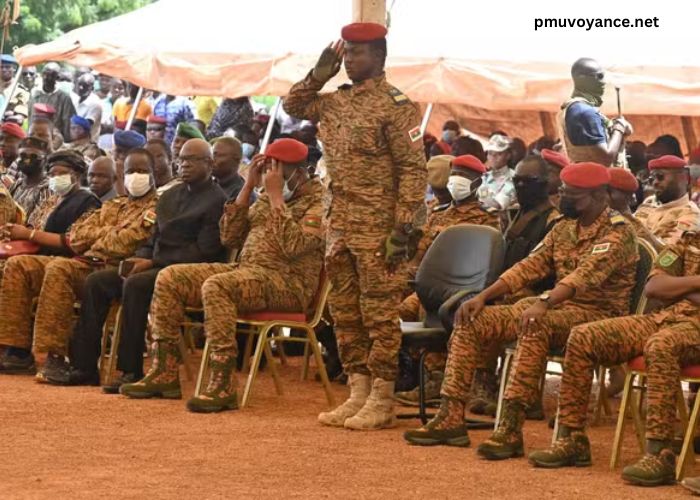Burkina Faso, a landlocked country in West Africa, has been facing increasing challenges related to terrorism, armed insurgencies, and violent extremist groups. The situation escalated in recent years, with many incidents reported across the country. The term Attaque Au Burkina Faso Aujourd’hui reflects the ongoing nature of these attacks, underscoring the gravity of the security crisis and its impact on both the local population and international stakeholders.
In today’s volatile environment, Burkina Faso has witnessed numerous attacks that have left behind devastating consequences, including loss of life and infrastructure damage. These attacks are often attributed to extremist groups such as Al-Qaeda and ISIS affiliates operating in the region, who are using violence as a tool to spread fear, disrupt governance, and gain control over territories. The phrase Attaque Au Burkina Faso Aujourd’hui symbolizes not just the tragic reality of the violence but also serves as a constant reminder of the urgency needed to address the root causes of instability in the region. This article will explore what these attacks mean for the people of Burkina Faso, how the government is responding, and the broader implications of these events on the regional and international security landscape.
What Is the Current Situation Regarding Attaque Au Burkina Faso Aujourd’hui?
The term Attaque Au Burkina Faso Aujourd’hui reflects the persistent and growing security crisis in the country. Burkina Faso has been under attack from various armed groups, especially since 2015, when the spread of extremist violence reached its peak. The violence has mainly been concentrated in the northern and eastern regions, which border Mali and Niger, countries that have also been grappling with similar insurgencies. These attacks are often brutal, targeting both civilian populations and military personnel, resulting in a growing humanitarian crisis.
The most common forms of attacks include ambushes, bombings, and assaults on villages, government posts, and security forces. Armed groups, often linked to jihadist ideologies, aim to destabilize the government and impose their own vision of law and order. The violence has forced hundreds of thousands of people to flee their homes, resulting in a severe internal displacement crisis. Despite efforts from the government and international partners to counter these threats, Attaque Au Burkina Faso Aujourd’hui continues to be a major security challenge, with little sign of immediate resolution.
How Are the Government and Military Responding to the Attaque Au Burkina Faso Aujourd’hui?
The Burkinabe government and military have been engaged in a prolonged fight against extremist groups responsible for the Attaque Au Burkina Faso Aujourd’hui. In recent years, the government has sought to strengthen its military capabilities and collaborate with regional and international forces to combat terrorism. Operations are carried out by the Burkinabe army, sometimes with the support of neighboring countries such as Mali and Niger, as well as French troops operating in the Sahel region through Operation Barkhane.
However, the response has been criticized for being insufficient and uncoordinated in some areas, as attacks have continued to escalate. The military’s ability to protect civilians and maintain security has been severely compromised due to the large geographical area affected by the violence and the limited resources available. Furthermore, the military has faced allegations of human rights abuses, which has undermined its efforts to win the hearts and minds of local populations. The government has also been focusing on diplomatic efforts, urging international support, and calling for stronger counterterrorism measures from the global community in the face of Attaque Au Burkina Faso Aujourd’hui.
What Are the Causes Behind the Attaque Au Burkina Faso Aujourd’hui?
The causes of Attaque Au Burkina Faso Aujourd’hui are deeply rooted in a combination of political, economic, and social factors. One of the primary drivers is the presence of extremist groups in the Sahel region, who exploit local grievances to recruit fighters and gain influence. The poverty, unemployment, and lack of education in many areas of Burkina Faso provide fertile ground for the spread of extremist ideologies.
Additionally, historical factors such as ethnic and political divisions have contributed to the vulnerability of the country. The breakdown of state institutions in some areas has made it difficult for the government to maintain control and deliver services, leaving many rural areas exposed to the influence of armed groups. The porous borders with neighboring conflict zones like Mali and Niger also facilitate the movement of fighters, weapons, and resources across the region. As a result, Attaque Au Burkina Faso Aujourd’hui is not just a local issue but part of a wider regional conflict that requires coordinated international intervention to resolve.
What Impact Has the Attaque Au Burkina Faso Aujourd’hui Had on the Civilian Population?
The impact of the Attaque Au Burkina Faso Aujourd’hui on the civilian population has been devastating. Thousands of civilians have been killed, injured, or abducted by extremist groups, and entire villages have been destroyed or abandoned due to the ongoing violence. According to the United Nations, more than 1.4 million people have been displaced within the country as a result of the attacks, creating one of the largest internal displacement crises in the world.
Apart from the loss of life and property, the attacks have caused widespread fear and insecurity. People are afraid to leave their homes or go to markets, and children are unable to attend school in some regions. The economic impact has been equally severe, with businesses disrupted, agricultural activities affected, and communities unable to thrive due to the constant threat of violence. The humanitarian situation is dire, and many people are living in conditions of extreme vulnerability, lacking access to basic services such as healthcare, clean water, and food.
How Is the International Community Responding to the Attaque Au Burkina Faso Aujourd’hui?
The international community has expressed deep concern over the Attaque Au Burkina Faso Aujourd’hui and its broader implications for regional stability. The United Nations, the African Union, and regional organizations like ECOWAS have all called for stronger action to address the growing threat of terrorism in the Sahel region. France, which has a strong military presence in the region, continues to support Burkina Faso in its fight against jihadist insurgencies through Operation Barkhane and other counterterrorism initiatives.
The international community’s response has included providing financial and logistical support for the Burkinabe government and military, as well as offering humanitarian aid to the displaced populations. However, critics argue that the international efforts have been fragmented, and there is a need for a more comprehensive approach to the crisis. While military responses are essential, experts emphasize the importance of addressing the root causes of terrorism, such as poverty, political instability, and governance issues, to achieve long-term peace and security in Burkina Faso and the wider Sahel region.
What Role Can the Burkinabe Population Play in Addressing the Attaque Au Burkina Faso Aujourd’hui?
The Burkinabe population plays a crucial role in combating the Attaque Au Burkina Faso Aujourd’hui. While the government and military forces have a primary responsibility to secure the country, the local population can contribute to addressing the underlying causes of the violence. Community engagement and local peacebuilding efforts are essential in reducing the influence of extremist groups.
Civil society organizations, religious leaders, and local communities can help foster dialogue, promote social cohesion, and work towards reconciliation in areas affected by violence. Additionally, by increasing awareness about the dangers of extremism and providing alternatives for youth who might otherwise be drawn into violence, the population can become a key partner in countering the insurgency. It is vital for the Burkinabe people to feel empowered to work together to rebuild their country and create a more secure and stable environment for future generations.
Conclusion
In conclusion, Attaque Au Burkina Faso Aujourd’hui represents a tragic and ongoing crisis that affects not only the people of Burkina Faso but the entire Sahel region. Despite efforts from both the government and international community, the attacks have led to severe loss of life, displacement, and instability. While military responses are necessary, addressing the root causes of the violence, such as poverty, political instability, and extremism, is essential for achieving long-term peace. The role of the Burkinabe population in fostering peace, together with continued international support, will be critical in overcoming the challenges posed by the ongoing attacks. The situation calls for urgent, coordinated action to bring peace and security back to Burkina Faso.



